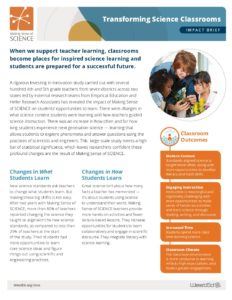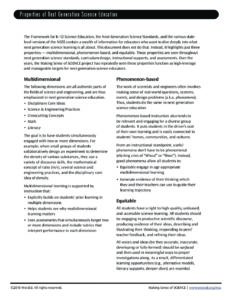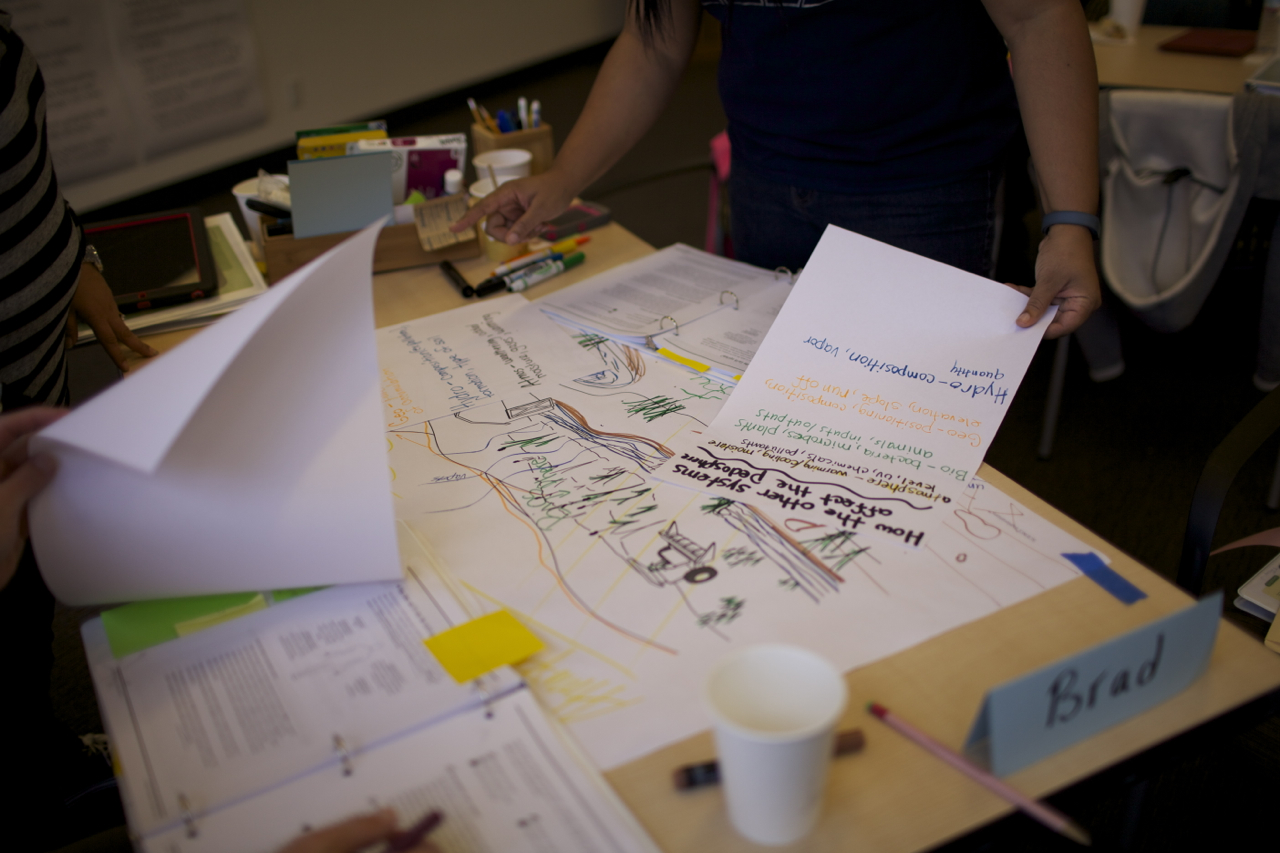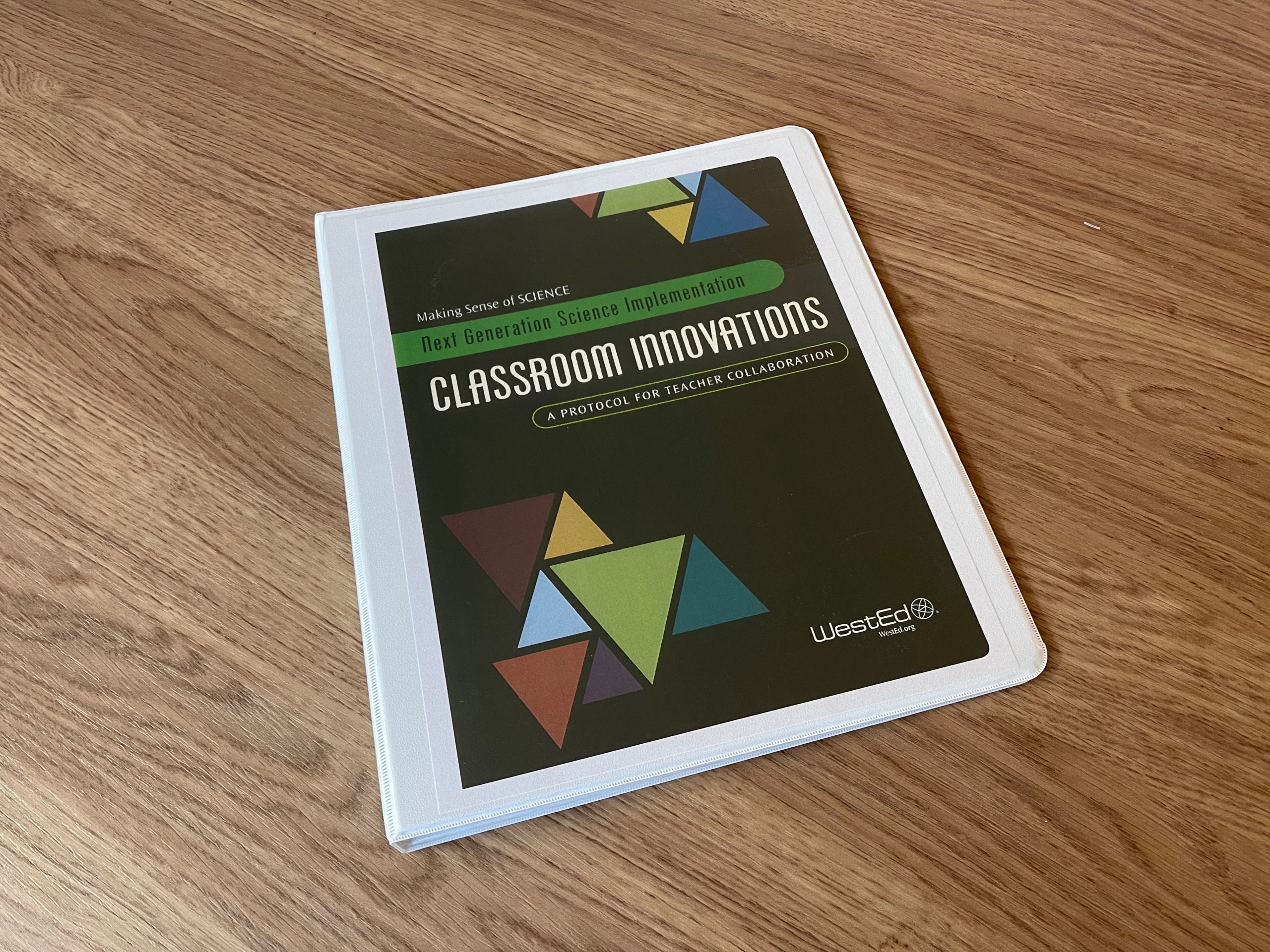January 6, 2021 • School Spotlight
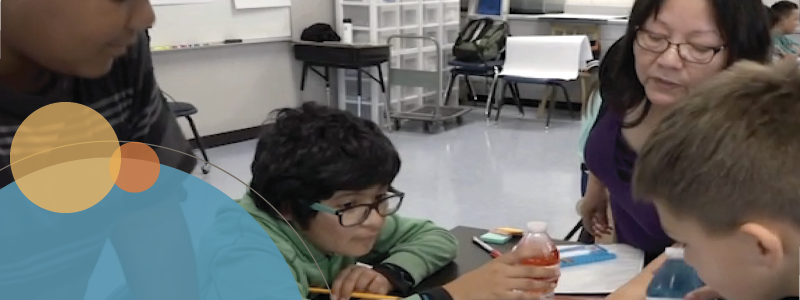
The Making Sense of SCIENCE Investing in Innovation (i3) project is a comprehensive initiative designed to provide professional learning and classroom supports to upper elementary teachers transitioning to NGSS. As part of this project, MSS is also working to add to the body of knowledge about what works for NGSS implementation. Recently, MSS sat down with teachers and leaders from a participating school in the Manteca Unified School District to learn more about their journey. Here are some of the things they shared.
The nice thing is that during our lunchtime we’re collaborating. Before school and after school, we’re also collaborating. We encourage each other. We support each other. And then when we have something that didn’t work out right, we talk about it and we help each other.
AmyElda Rodriguez
Fifth Grade Teacher
Meeting Teacher Needs
Peer-to-peer collaboration
Building a network of support among colleagues has been crucial. To create a forum for collaborative conversation, teachers formed PLCs that meet once a month. Elda Rodriquez (5th-grade teacher) described how collaboration has become part of their daily conversations.
Professional learning
Principal Jacalyn Davis described professional learning as one of the key components in their transition. The district’s NGSS Coordinator, Lisa Snyder, provided strategic support around shifting lessons toward NGSS, as well as mentorship and coaching. Teachers also attended 5-day MSS courses that helped deepen their content knowledge and skills in science, support their integration of literacy in science, and broaden their experience with next generation pedagogical tools.
My students are really excited to be scientists and engineers. They love that they don’t have to know the correct answer right off the bat, or build a perfect device the first time — they get to investigate their ideas more to understand them, or rebuild design solutions that don’t hit the mark the first time.
Amy Bass
Fourth & Fifth Grade Teacher
Meeting Student Needs
Collaborative discourse
A key component to next generation learning is collaboration, which requires students to engage in productive discourse to further their understanding. However, teachers noted that few students had experience learning in this way. They talked about the importance of modeling this type of conversation, provide a rationale to students for why this type of conversation is such an important part of next generation education, and introduce scaffolds (e.g., sentence stems, discussion protocols) and group norms to help them succeed.
Doing science and engineering
Universally, the teachers described the huge value students get from doing science and engineering with their own hands — not just reading about them in a textbook. Sergio Viera (5th grade) reflected on his own science education, saying that his fondest memories of science were when he was doing hands-on work and that he didn’t remember much else. Amy Bass (4th/5th combo) said that her students were excited to “be scientists and engineers.”
Equitable engagement
Teachers explained how the multidimensionality and pedagogy of next generation science helped create a learning environment where all students had an equitable opportunity to learn. Teachers reported that student engagement was improved across the board — even for students struggling academically and for English language learners. Students were making connections to their day-to-day lives and excited to do the work of science and engineering.
There’s something about physically doing the exploration yourself. You’re formulating the questions — what if I do this? What if I do this other thing? What am I going to expose?
Sergio Viera
Fifth Grade Teacher
This SCIENCE Corner is part of a series of NGSS-focused posts by educators and leaders in the field. This post was written by Jennifer Mendenhall based on interview footage collected from Great Valley Elementary teachers and leaders. Great Valley Elementary School is part of the Manteca Unified School District in the Central Valley of California.
